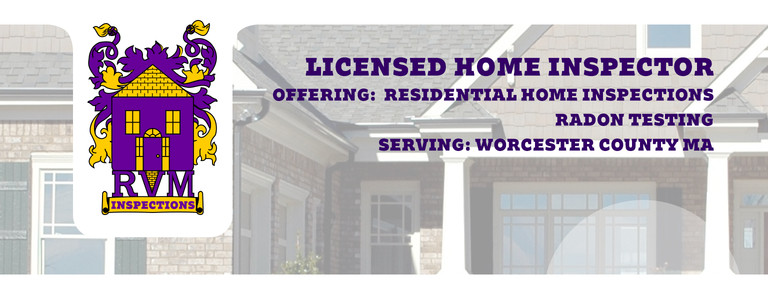 Selling a home can be a thrilling yet daunting experience. One of the most important steps in the process is the home inspection, where a licensed inspector evaluates the condition of your home to determine if any repairs or issues need to be addressed before the sale can proceed. For many sellers, the inspection can feel like a hurdle—especially if they are unfamiliar with the process. However, understanding what to expect and how to handle the inspection will help ease the stress and ensure the experience goes smoothly.
Selling a home can be a thrilling yet daunting experience. One of the most important steps in the process is the home inspection, where a licensed inspector evaluates the condition of your home to determine if any repairs or issues need to be addressed before the sale can proceed. For many sellers, the inspection can feel like a hurdle—especially if they are unfamiliar with the process. However, understanding what to expect and how to handle the inspection will help ease the stress and ensure the experience goes smoothly.
Here are some valuable tips for homeowners to keep in mind when they have a home inspector coming to inspect their property.
1. Home Inspections Are Standard Practice
First, it’s important to remember that home inspections are a standard part of most real estate transactions. Buyers generally request them as a way to protect themselves from purchasing a property that may have hidden problems. While it might feel invasive to have someone come into your home and scrutinize it, understand that an inspector’s role is simply to identify any issues that could impact the value of the property or the buyer’s safety.
2. Be Prepared for the Inspector’s Visit
A successful inspection starts with preparation. While it’s not necessary to perform extensive renovations or deep cleaning before the inspector arrives, there are several things you can do to make the process easier:
Ensure Easy Access: The inspector will need to access various parts of the home, including the attic, basement, crawl spaces, and exterior areas. Clear away any obstacles that might block entry, like furniture, boxes, or overgrown shrubs.
Fix Minor Issues (If Possible): If you know of any minor repairs—like leaky faucets, loose door handles, or broken light bulbs—take the time to fix them. While these small fixes likely won’t affect the overall inspection, they can make a positive impression and prevent minor issues from being flagged.
Provide Documentation: If you’ve had major work done to the home, such as roof repairs or plumbing updates, provide the inspector with any receipts or warranties. This can help the inspector better understand the work that has been completed and reduce the likelihood of unnecessary concerns.
3. Respect the Inspector’s Role and Etiquette
During the inspection, it’s important to be mindful of the inspector’s time and focus. Inspectors are professionals who will likely spend anywhere from 2 to 4 hours assessing the home, depending on its size. Here’s how you can show respect for their work:
Stay Out of the Way: While it might be tempting to hover over the inspector to understand every detail, it’s best to give them space to perform their job. Most inspectors will allow you to follow along and ask questions at appropriate times, but standing back will allow them to do a thorough job without interruptions.
Be Available for Questions: If the inspector needs clarification about something in the home, such as the age of an appliance or the history of a repair, be ready to provide accurate information. However, avoid offering opinions or making statements about the condition of the home unless asked.
Keep the Family and Pets Away: Home inspections can be lengthy, and inspectors need a quiet, uninterrupted environment to complete their work. If possible, take your pets and family members out of the house during the inspection to prevent distractions and to make the process smoother.
4. Expect a Thorough and Detailed Report
Once the inspection is complete, you’ll receive a report that outlines the inspector’s findings. The report will typically cover:
Structural Integrity: The foundation, walls, and framing of the home.
Roof and Attic: Condition of the roof, insulation, and ventilation.
Plumbing and Electrical Systems: Any issues with pipes, wires, and connections.
HVAC Systems: Heating, cooling, and ventilation.
Exterior and Landscaping: Condition of the exterior siding, driveway, and yard.
While the inspector will point out any significant issues, they may also highlight minor concerns or maintenance items that could need attention soon.
5. Understand the Inspection Doesn’t Mean Perfection
A home inspection is not meant to declare a home “perfect,” but rather to identify any major issues that might affect the sale or safety of the property. It’s normal for an inspection report to include some imperfections, especially in older homes. Don’t be alarmed if the report contains a long list of findings. Most of these will be minor issues that do not necessarily require immediate action.
Keep in mind that a home inspection is not the same as an appraisal. An appraiser will look at the value of your home in comparison to similar properties in the area, while an inspector will evaluate its physical condition. A few repairs or updates may be needed, but they are not always a dealbreaker.
6. Anticipate Negotiations Post-Inspection
Once the buyer reviews the inspection report, they may request repairs or adjustments to the purchase price based on the findings. This is a common part of the negotiation process. As the seller, you have several options:
Make Repairs: You may choose to complete the repairs yourself, either by hiring contractors or taking on smaller tasks yourself.
Offer a Credit: Instead of making repairs, you might offer the buyer a credit at closing, allowing them to make repairs after the sale.
Decline to Make Changes: In some cases, you may opt not to address the buyer’s concerns, particularly if they are minor. However, be prepared for the buyer to potentially walk away from the deal if the issues are significant.
7. Communication Is Key
Throughout the process, maintain open communication with your real estate agent, the buyer’s agent, and the inspector. Address concerns promptly and professionally. If you disagree with any findings or feel certain items were overlooked, respectfully discuss them with the inspector or your agent to ensure everything is handled appropriately.
8. Keep Calm and Be Flexible
While it’s natural to feel anxious or defensive about the home inspection process, it’s important to stay calm and flexible. Understand that the inspection is just one step in the sale process and that it’s not a reflection of your home’s value or worth. Buyers are simply trying to protect their investment, and you want to make sure that the sale goes through smoothly for both parties.
The home inspection is an essential part of the home-selling process, and it’s best to approach it with a positive mindset. By preparing for the inspection, understanding what to expect, respecting the inspector’s role, and being open to negotiations, you can help ensure that the process goes smoothly and that you are well-positioned to sell your home for the best price. Keep these tips in mind, and you’ll be able to navigate the inspection with confidence and professionalism.








